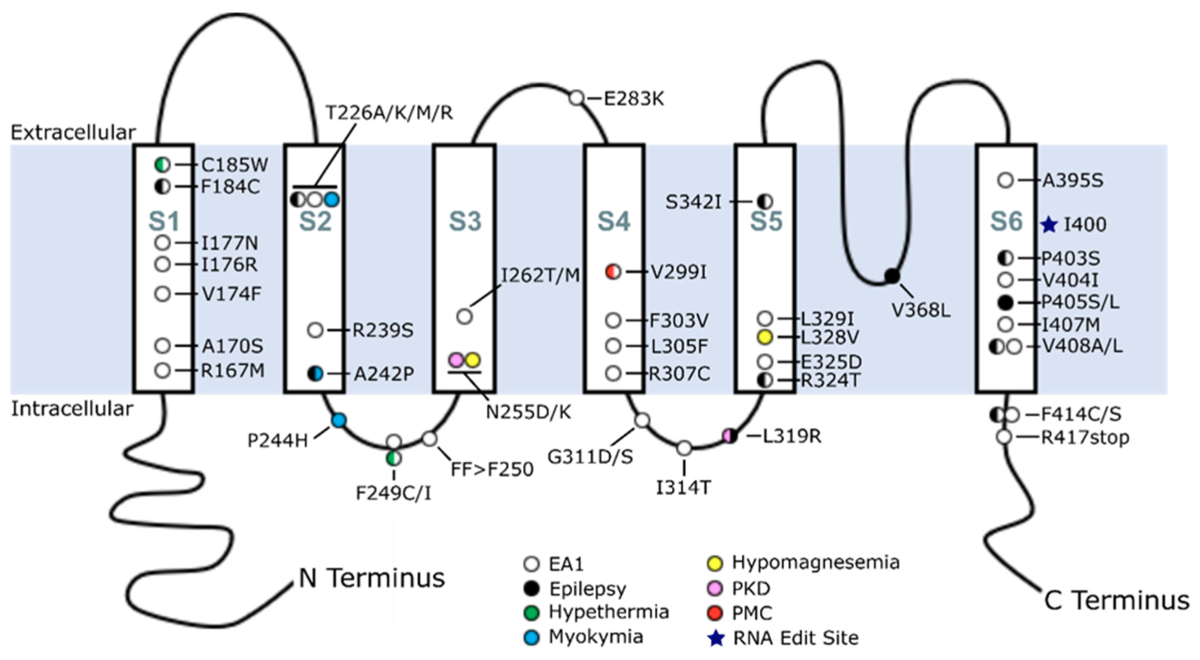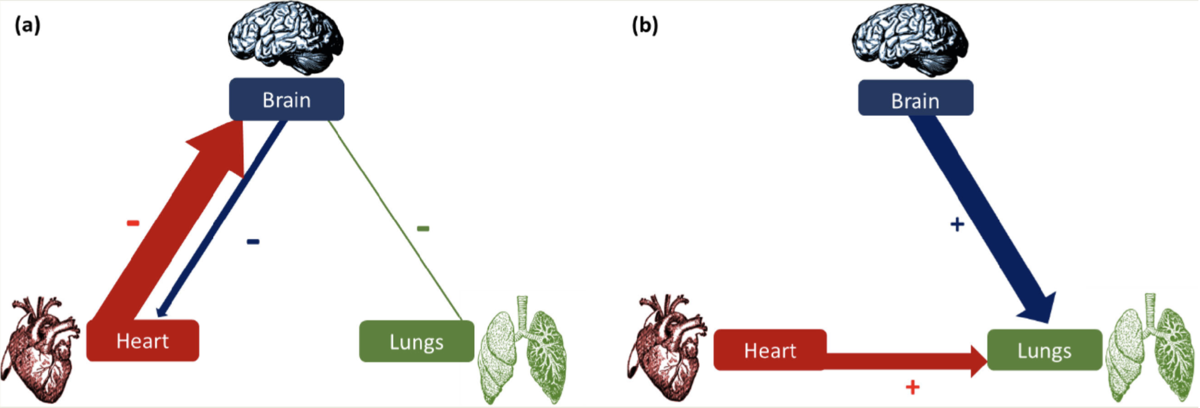Research
We are focused on understanding the genes and mechanisms underlying
epilepsy and sudden unexpected death in epilepsy (SUDEP). Epilepsy is
the 4th most common neurological disorder affecting about 1 in 26
Americans during their lifetime. Epilepsy is characterized by the
presence of recurrent unprovoked seizures due to abnormal electrical
activity in the brain. Genetics and heredity play an important role in
the development of epilepsy. One of the goals of the lab is to identify
the genes and combinations of genes that determine whether an individual
will develop epilepsy.

Map of KCNA1 gene mutations associated with epilepsy and other human diseases. (from Paulhus et al, Int J Mol Sci 2020, 21:2802)
People with epilepsy have an increased
risk of dying suddenly for unknown reasons. These deaths are classified
as sudden unexpected death in epilepsy (SUDEP) and represent the leading
cause of epilepsy-related mortality. The exact causes of SUDEP are
poorly understood, but the leading explanation is that seizures evoke
respiratory failure or cardiac arrhythmias that culminate in death. One
of the focuses of the lab is to better understand how epilepsy can alter
the brain’s control of cardiorespiratory function increasing the risk
of SUDEP. In addition, we are striving to develop new therapeutics to
prevent SUDEP and better biomarkers to predict those with high risk. For a personal story about SUDEP related to our research, click here. To
explore these research questions, we study genetic mouse models of epilepsy,
utilizing a wide array of in vivo, ex vivo, and in vitro
electrophysiological techniques, pharmacology, histology, and molecular
analyses.

Diagram of altered neuro-cardio-respiratory interactions in the Kcna1 knockout mouse model of epilepsy and SUDEP. (from Hutson et al, IEEE OJEMB 2020, 1:301-311)
Our research has been supported by the National Heart Lung and Blood Institute (NHLBI), the National Institute of Neurological Disorders and Stroke (NINDS), Citizens United for Research in Epilepsy (CURE), the Epilepsy Foundation, and the American Heart Association (AHA).